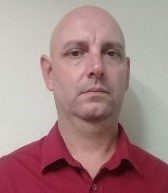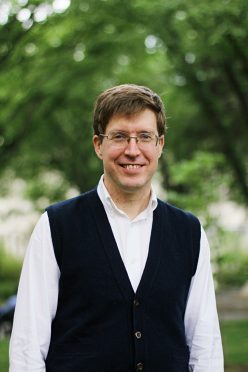
Prof. Julio Madera
Title: Estimation of Distribution Algorithms: from Theory to Applications
Bio:
Julio Madera received his Bachelor degree in Computer Sciences from Universidad Central de Las Villas (UCLV), Cuba in 1997. In 2007 received the MSc degree in Applied Informatics from University of Camagüey. In 2009 obtained the Ph.D. degree in Mathematical Sciences from University of Havana (UH), Cuba. He is currently a Full Professor in the Department of Computer Science at University of Camagüey, Cuba. His research interests include Machine Learning, Optimization, Evolutionary Algorithms and Estimation of Distribution Algorithms. He has co-authored research papers and presentations in national and international journals, conference proceedings and special issues book chapters. He participates in several research projects funded by VLIR-UOS (Belgium), Ministry of Science, Technology and Environment (Cuba), University of Camagüey (Cuba) and companies’ projects (Cuba).
Abstract:
Estimation of Distribution Algorithms (EDA) are general optimizers that represent an alternative to classical approaches like Genetic Algorithms (GA). EDA learn probabilistic models from promising solutions by selecting and sampling points from the underlying search space. Recently, there is a significant interest in the theoretical aspects of EDA and their application to practical problems. The talk is divided into two parts. Firstly, Estimation of Distribution Algorithms will be introduced and some theoretic elements are described. Often, small examples will be given in order to ease understanding. In the second part, we present different application examples in fields as Protein Folding, Machine Learning, Engineering, and Smart Cities.

Gonzalo Abascal
Title: Blockchain: Core technology to build a trusted personal biometric identity system in Mexico
Bio:
Gonzalo Abascal has been an entrepreneur for more than 17 years, he is cofounder of Linko and Chaintity, and participates in several entrepreneurial associations. He has mentored dozens of entrepreneurs in Founders Institute, EO Accelerator, Universidad Panamericana and SPARK accelerator among others.
He is an expert in digital technologies for the financial market in Mexico, where he has developed most of his career, he studied an Entrepreneurial Masters Program at MIT in 2011.
He is 39 years old and is the father of 3 kids, he is an active member of EO (Entrepreneurs Organization) http://www.eonetwork.org, and he has been selected by Endeavor (http://endeavor.org), a global accelerator focused on developing high-impact entrepreneurship.
His most important companies are:
- Linko: Linko improves digital customer’s experience for banks and financial institutions in Mexico.
- Chaintity: The first Blockchain-powered digital identity bureau in Mexico. Chaintity can has facial, video and fingerprint recognition technologies, to enable digital KYC practices in Mexico.
Abstract:
Establishing a transparent, reliable and secure personal biometric identity system is key for our national digital economy, and the expected development in any modern country. Mexico has been enforcing public policies regarding biometric enrollment and identification for banking customers, but so far, the country is still lacking an initiative able to integrate and leverage the efforts of banks and financial institutions. In this keynote, we will explore the work done by 3 large financial institutions in Mexico, to build a national personal ID system, the challenges and technologies involved for this platform.

Professor Nathaniel Osgood
Title: Multiparadigm modeling in Health
Bio:
Nathaniel Osgood is a Professor in the Department of Computer Science and Associate Faculty in the Department of Community Health & Epidemiology at the University of Saskatchewan. His research is focused on providing cross-linked simulation, ubiquitous sensing, and machine learning tools to inform understanding of population health trends and health policy tradeoffs. His applications work has addressed challenges in the communicable, zoonotic, environmental, and chronic disease areas. Dr. Osgood is further the co-creator of two novel mobile sensor-based epidemiological monitoring systems, most recently the Google Android- and iPhone-based iEpi (now Ethica Health) mobile epidemiological monitoring systems. He has additionally contributed innovations to improve dynamic modeling quality and efficiency, introduced novel techniques hybridizing multiple simulation approaches and simulation models with decision analysis tools, and which leverage such models using data gathered from wireless epidemiological monitoring systems. Dr. Osgood has led many international courses in simulation modeling and health around the world, and his online videos on the subject attract thousands of views per month. Prior to joining the U of S faculty, he graduated from MIT with a PhD in Computer Science in 1999, served as a Senior Lecturer at MIT and worked for a number of years in a variety of academic, consulting and industry positions.

